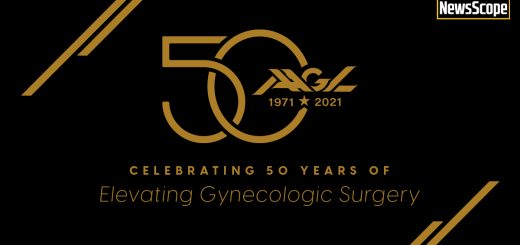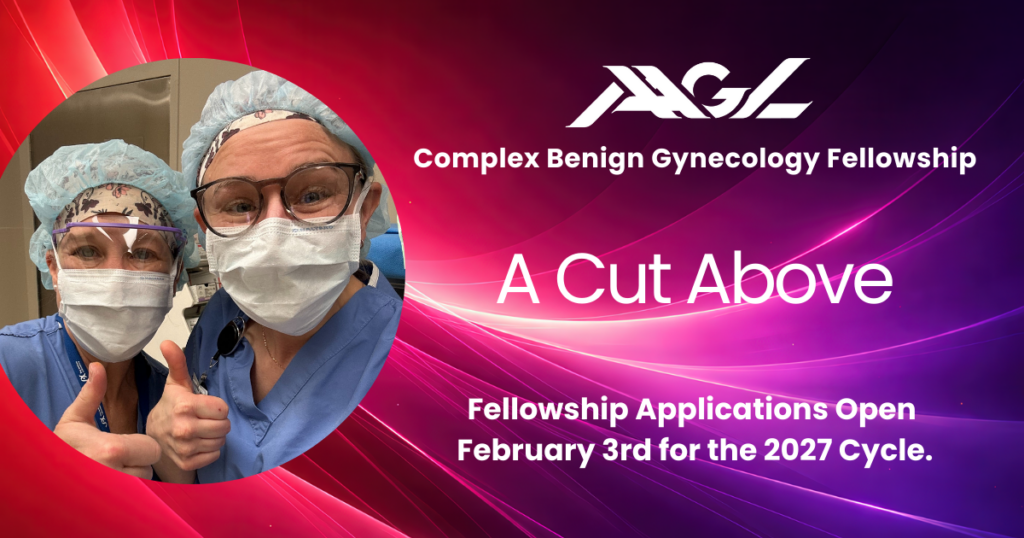Letter in Support of Updated ACOG Committee Opinion on Morcellation

Since the highly publicized 2014 case where a leiomyosarcoma (LMS) was discovered after a minimally invasive hysterectomy for presumed fibroids, the topic of morcellation has been much discussed and debated. The FDA’s inadequate statistical analysis of the prevalence of leiomyosarcoma further clouded the issue. The subsequent black box warning on morcellator devices led to a decline in minimally invasive gynecologic surgery for women and an increase in morbidity from substituted open procedures.
The Agency for Healthcare Quality and Research thoroughly analyzed 157,000 surgeries and calculated a prevalence of LMS as 1/770 to 1/10,000. For studies that reported highly reliable histopathologic evaluation, the rate was 1/4,000 surgeries (0.02%) (Hartmann KE, Fonnesbeck C, Surawicz T, Krishnaswami S, Andrews JC, Wilson JE, Velez-Edwards D, Kugley S, Sathe NA. Management of Uterine Fibroids. Comparative Effectiveness Review 2017, No. 195).
Both AAGL and ACOG convened committees to examine the evidence for LMS prevalence and published opinions (AAGL 2018, ACOG 2019) that examined the spectrum of risks and benefits of MIS and morcellation for women with fibroids. They each concluded that all existing methods of tissue extraction have risks and benefits and although an abdominal hysterectomy or myomectomy may reduce the chance of spreading cancer cells in women with undiagnosed leiomyosarcoma, it is associated with increased morbidity when compared with minimally invasive approaches.
The recent FDA update (2021) suggests use of a containment system with morcellation but provides no evidence that containment systems mitigate the risk of spreading cancer if LMS is present. They further suggest that women over 50 should not have a morcellation procedure. While the risk of LMS increases with age, no sharp increase in prevalence occurs at age 50 and a pre-operative evaluation should help mitigate risk. ACOG reviewed the current data and recently published a Committee Opinion which encourages proper counseling and shared decision-making for the appropriateness of MIS morcellation procedures for each woman (Committee on Gynecologic Practice. Uterine Morcellation for Presumed Leiomyomas. Obstet Gynecol 2021;137:552-3).
The brief letter below, signed by 47 Ob-Gyns, shows broad support for MIGS and morcellation and is meant to encourage gynecologists to offer minimally invasive procedures with informed consent and shared decision-making for women having surgery for fibroids.
________________________________________________________________________________________________________________________________________________________________________________________________________________
To the Editors,
We thank ACOG and the Committee on Gynecologic Practice for the recent update to the Committee Opinion on Uterine Morcellation for Presumed Leiomyomas (Obstet Gynecol, 2021;137:552). The opinion is clearly the product of a careful and thoughtful review of the current literature regarding the low prevalence of leiomyosarcoma among women having surgery for presumed fibroids, the increased risk of open surgery when compared with minimally invasive approaches, and the importance of proper evaluation and counseling for patients. We hope this Committee Opinion allows more gynecologists to provide minimally invasive treatment options for women suffering with fibroid-related symptoms who are appropriate candidates. Most importantly, the opinion preserves the rights of women to engage in shared decision-making to choose a treatment that is right for them.
Thank you,
William H. Parker, MD
UC San Diego
San Diego, California
Jonathan S. Berek, MD, MMS
Stanford University School of Medicine
Stanford, California
Elizabeth Pritts, MD
Wisconsin Fertility Institute
Middleton, Wisconsin
Andrew M. Kaunitz, MD
University of Florida College of Medicine–Jacksonville
Jacksonville, Florida
Daniel Clarke-Pearson, MD
UNC-Chapel Hill
Chapel Hill, North Carolina
Barbara Goff, MD
University of Washington
Seattle, Washington
Hugh S. Taylor, MD
Yale-New Haven Hospital
New Haven, Connecticut
Amanda Nickles Fader, MD
Johns Hopkins Medicine
Baltimore, Maryland
G. Larry Maxwell, MD, FACOG, COL (ret)
U.S. Army/Inova Health System
Fairfax, Virginia
William E Gibbons, MD
Baylor College of Medicine
Houston, Texas
Timothy Johnson, MD
University of Michigan
Ann Arbor, Michigan
David S. Guzick, MD, PhD
University of Florida
Gainesville, Florida
Dee Fenner, MD
University of Michigan
Ann Arbor, Michigan
Sawsan As-Sanie, MD, MPH
University of Michigan
Ann Arbor, Michigan
Richard J. Paulson, MD
University of Southern California
Los Angeles, California
Laurel W. Rice, MD
University of Wisconsin-Madison School of Medicine and Public Health
Madison, Wisconsin
Charles Ascher-Walsh, MD
Mt. Sinai School of Medicine
New York, New York
Sarah J. Kilpatrick, MD, PhD
Cedars-Sinai Medical Center
Los Angeles, California
David Adamson, MD
Stanford University School of Medicine
Palo Alto, California
Linda Bradley, MD
Cleveland Clinic
Cleveland, Ohio
Robert Barbieri, MD
Harvard Medical School
Boston, Mass
Ilana Cass, MD
Geisel School of Medicine, Dartmouth
Lebanon, New Hampshire
Lorna Marshall, MD
University of Washington
Seattle, Washington
Matthew Siedhoff, MD, MSCR
Cedars-Sinai Medical Center
Los Angeles, California
Robert Israel, MD
University of Southern California
Los Angeles, California
John R Lurain, MD
Northwestern University Feinberg School of Medicine
Chicago, Illinois
Ayman Al-Hendy, MD, PhD, FRCSC, FACOG
University of Chicago
Chicago, Illinois
Guy I. Benrubi, MD
University of Florida College of Medicine – Jacksonville
Jacksonville, Florida
John DeLancey, MD
University of Michigan Health System
Ann Arbor, Michigan
Marilyn K. Laughead, MD
University of Arizona
Tempe, Arizona
James Macer, MD
Keck School of Medicine of USC
Los Angeles, California
Elizabeth A Stewart, MD
Mayo Clinic
Rochester, Minnesota
Michael McHale, MD
UC San Diego
San Diego, California
Deborah Krakow, MD
UCLA School of Medicine
Westwood, California
Beth Y. Karlan, MD
UCLA School of Medicine
Westwood, California
Matthew D. Barber MD, MHS
Duke University Medical Center
Durham, North Carolina
Rosanne Kho, MD
Cleveland Clinic
Cleveland, Ohio
Valentina M. Rodriguez, MD
UCLA School of Medicine
Westwood, California
Kevin Reynolds, MD
University of Michigan
Ann Arbor, Michigan
John A. Rock, MD
Herbert Wertheim College of Medicine
Miami, Florida
Jubilee Brown, MD
Levine Cancer
Charlotte, North Carolina
Robert Prins, MD
University of Washington
Seattle, Washington
Phyllis C. Leppert, MD, PhD
Duke University School of Medicine
Durham, North Carolina
Anna Reinert, MD
Keck School of Medicine at USC
Los Angeles, California
Jennifer Israel, MD
Keck School of Medicine at USC
Los Angeles, California
Marie Fidela Paraiso, MD
Cleveland Clinic
Cleveland, Ohio
Michael Frumovitz, MD, MPH
UT MD Anderson Cancer Center
Houston, Texas






